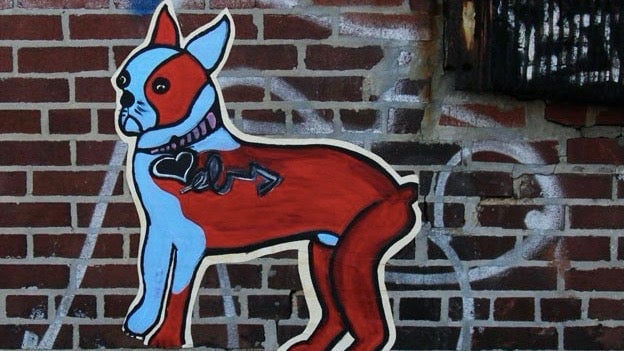2018 is the year of the doggo and the demise of the doge
The doge is not pleased. For the year of the doggo is almost upon us.


The doge is not pleased. For the year of the doggo is almost upon us.
If you love your pupper, as so many of us do, you probably have many affectionate pet names for your canine friend. Well, so do the interwebs. It used to be that everyone’s favorite internet dog meme was, “The doge is pleased.”

But the times are changing rapidly and even the most avid dog lovers may find they’re behind on the latest and greatest appellation for their favorite furry friends if they’re not talking about the doggo. Merriam-Webster Dictionary on Dec. 27 announced that this is a word to watch closely.
Here’s what you need to know about doggo. It’s late 19th century slang, used mostly in the phrase “to lie doggo,” indicating lying low or flying under the radar. Its precise meaning is uncertain. “Perhaps the phrase was meant to evoke the light sleep of dogs,” the dictionary speculates. “What we do know is that the word itself does go back to dog, and is probably the word dog with the noun suffix -o, meaning ‘one that is, has the qualities of, or is associated with.’”
Rudyard Kipling used “doggo” in several stories, and by the 20th century, the word appeared often, especially in serial fictions about hard-boiled detectives, according to the dictionary. On Christmas 1920, the word showed up in the Boston Post as follows, “when the old oil flickered forth the dollars frolicked into the family coffers like fleas to a well-fed doggo.” In June, Merriam-Webster was already thinking about the revival of this word, tweeting its original meaning.
The doggo craze began last year, however. “Doggo remained a casual and occasional word for a dog until 2016, when it became popular as part of the standard vocabulary of one of Twitter’s best-loved accounts, 14/10,” writes the dictionary. The word saw ”a meteoric rise in use in 2017 and continues its upward trajectory.”
Presumably Americans are taking more comfort from puppers in difficult times, the language experts at Merriam-Webster say, guessing at the reason for the word’s rise. What’s known certainly is that doggo is the go-to word for the linguistically hip, which means the doge’s days are definitively over.